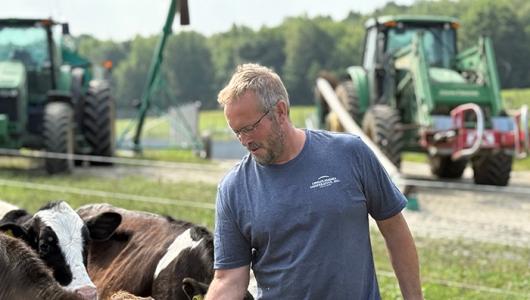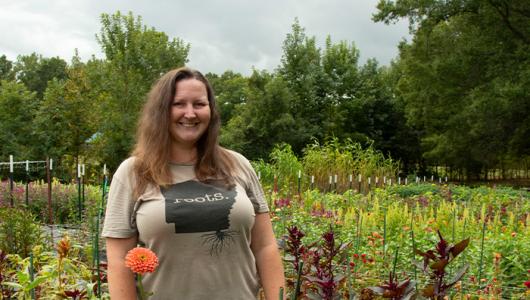This Friday meet Jason Bzdula, an urban farmer and owner of Wolfberry Hawthorn Farm in Durham, North Carolina. Among common crops and cut flowers, Wolfberry Hawthorn Farm is a small farm specializing in natural-grown produce that is not widely grown in the central North Carolina area, including leeks, edamame, ground cherries, burgundy okra, sunchokes, and lemongrass, just to name a few.
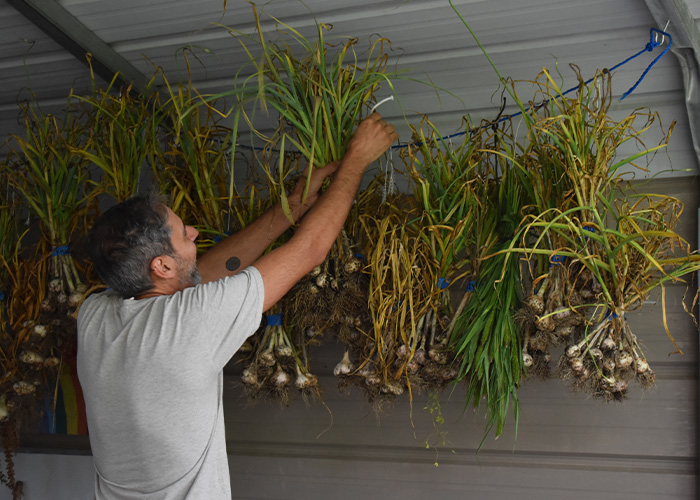
Jason strives to be a good steward of the natural world and in his agricultural business. His passion for conservation is shown throughout his property, and amidst his many plants is a pride flag, demonstrating another important aspect of his life.
Growing Wolfberry Hawthorn Farm
While Jason’s farm was officially established in 2017, his desire to grow healthy, sustainable food started almost a decade prior. Jason started out selling his produce with an honor system farm stand that he built in front of his operation. He eventually expanded to weekly produce boxes, and selling his cut flowers, plants, and produce at a local farmers market in nearby Raleigh. He became a full-time farmer in 2018, and now sells his products at multiple farmers markets in the area.
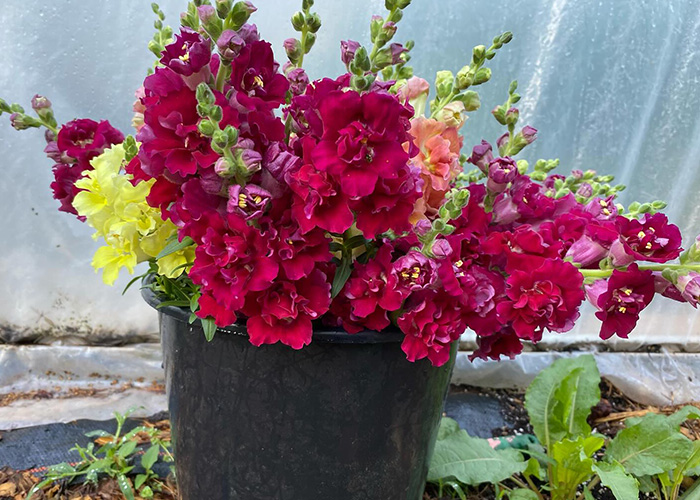
In addition to farmers markets, Jason runs a Community Supported Agriculture (CSA) program to provide varieties of microgreens, like sunflower, buckwheat, and kale, throughout the season. With CSAs, growers and consumers provide mutual support and share the risks and benefits of food production.
“The name ‘Wolfberry Hawthorn Farm’ comes from my love of Irish mythology, where Hawthorn was a fairy tree and considered bad luck to cut down as it would anger the fairy folk,” he said. “The name comes from my enjoyment in growing ‘the weird stuff.’ Wolfberries are more commonly known as goji berries and hawthorn is another uncommon edible, neither have been fruit I've been able to bring to market yet.”
Working with NRCS
To help meet his production and conservation goals, Jason reached out to local USDA Natural Resources Conservation Service (NRCS) staff in North Carolina and applied for financial and technical assistance through the Environmental Quality Incentives Program (EQIP). After he was approved, Jason and NRCS installed a high tunnel system to help protect plants from severe weather and extend his growing seasons.
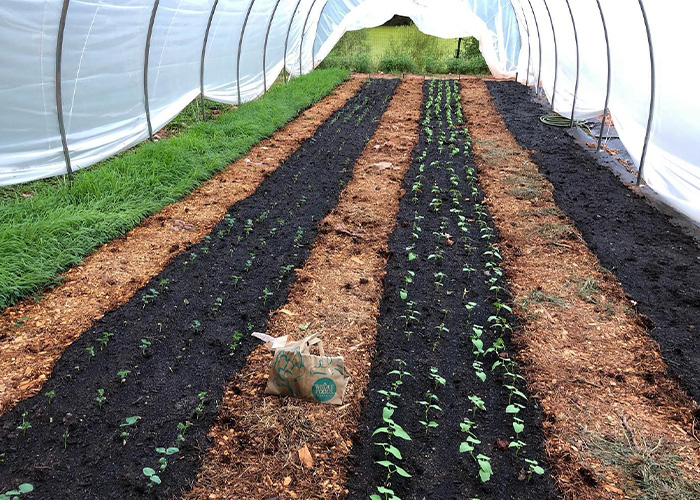
“Everyone I've worked with at NRCS has been great and made the entire experience smooth,” said Jason. “This year will be the first full season having the high tunnels, and so far, it has been a huge benefit for me and for the farm. I finished them late last summer and was able to get some late season crops in there. They are now a primary growing site on the farm.”
Because high tunnels prevent direct rainfall from reaching plants, farmers can use precise tools like drip irrigation to efficiently deliver water and nutrients to plants. High tunnels also offer farmers better pest control and can protect plants from pollen and pesticide drift.
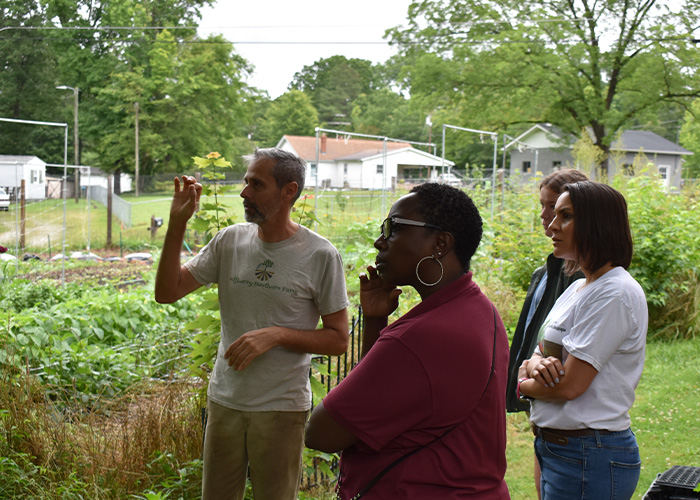
Growing Naturally
Wolfberry Hawthorn Farm received a Certified Naturally Grown certification in February 2020. According to the website, Certified Naturally Grown is a peer-review certification for farmers and beekeepers producing food, flowers, and fiber for their local communities by working in harmony with nature, without relying on synthetic chemicals or GMOs.
“We strive to work in balance with the natural world and with wildlife,” said Jason.
Looking to the future, Jason is focused on improving his operation, continuing to try new crops and looking for ways to help his community and nature.
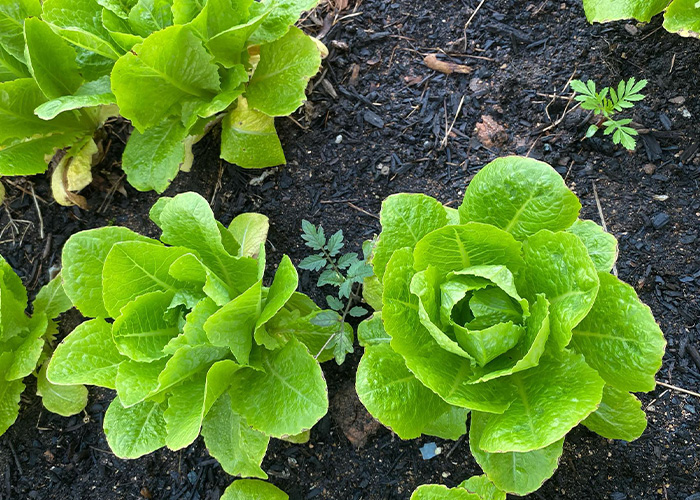
“The future of the farm is ever changing,” he said. “I have been focused on streamlining the farm to improve processes and coming up with ways to sell to a more hyper local customer base. I still will experiment with new and interesting crops. I'm experimenting with growing papayas in one of the high tunnels this year. I'm also getting more involved with the community and helping people create more pollinator and wildlife habitat in their yards with native plants.”
While Jason is mostly a one man show at Wolfberry Hawthorn Farm, he hosts workshops and events at his farm throughout the year. His advice for beginning farmers? “If possible, get some experience working or volunteering on a farm prior to starting your own so you have a better idea how things work and things you may not want to do.”
More Information
Visit local farms, ranches, forests, and resource areas through our Fridays on the Farm stories. Meet farmers, producers, and landowners who are working to improve their operations with USDA programs.
Are you gardening or farming in an urban environment? Are you looking to integrate innovative production practices in your operation? Learn about USDA resources that can help you start and grow your operation.
USDA offers a variety of risk management, disaster assistance, loan, and conservation programs to help producers weather ups and downs in the market and recover from natural disasters as well as invest in improvements to their operations. Learn about additional programs.
For more information about USDA programs and services, contact your local USDA service center.
Joshua Hammond is the public affairs specialist for NRCS in North Carolina.

